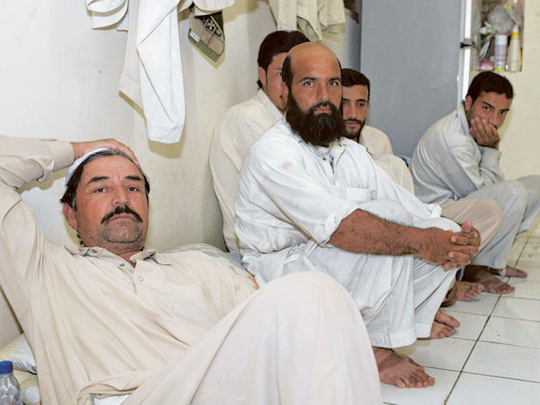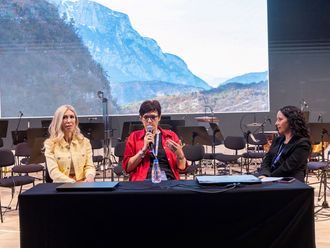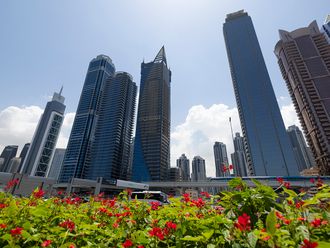
Dubai: Every time Shereen Zadia comes home, he barely recognises his children.
The Pakistani expatriate left his family 17 years ago to earn a living but comes home only every four years.
This Eid Al Adha, nothing else can make Zadia happier than to be with them again.
“Almost all my [adult] life I have lived outside my country. I never saw how my children grew up, never had the chance to play with them,” said Zadia, 38, who has been doing freelance kitchen repair work in the UAE for 12 years. Before that, the father-of-five worked in Saudi Arabia for five years.
Zadia said this feeling of being homesick often gets the best of him, but having two of his sons here at work somehow helps. Inside his room at one of the labour camps in Sonapur are six thin mattresses and a small cupboard. Other than the bundle of clothes hung on the wall, no other evidence of ‘home’ can be seen.
“I miss my family especially on special occasions like Eid or if there is some other problem like if someone died. We cannot afford to go. So, this is the time when we feel stuck and feel so bad because we want to go but we can’t go,” he said.
Samineh Shaheem, a psychologist who studied homesickness among expatriates, said that homesickness goes beyond missing or mourning the loss of a familiar place. It’s also brought about by lost memories and a lack of family attachment.
No one is spared when nostalgia stings, but those with less travel experience are more prone to experience it after being away for some time.
“There are different phases to the homesickness cycle. It starts off with the honeymoon period, there’s excitement and enthusiasm. And then once that wears off, there’s a sense of loss. Or there’s a feeling of a void that comes about,” Shaheem told Gulf News.
“Unfortunately, because it’s a very invisible sentiment, homesickness is very difficult to express and sometimes it’s very difficult to identify,” she added.
Homesickness often has psychological symptoms such as lack of concentration, disorientation, sadness, and recurrent mood changes. But it eventually manifests through physical symptoms such as changes in appetite, in patterns of sleep, or sometimes nausea, and dizziness.
Paula Lapidez, 27, arrived in Dubai in June. She left behind her two-year-old child and husband to give them a better future.
“I prepared myself mentally and emotionally before coming here to work. But no amount of preparation could spare you once loneliness sets in and when you begin to miss your loved ones,” she said.
She couldn’t stop crying and couldn’t sleep for the first two weeks as she was missing her only child.
In Dieu Hack-Polay’s paper ‘A Study of Homesickness and Coping Strategies among Migrant Workers and Expatriates,’ published in the International Journal of Psychological Studies this year, Polay said that “evidence suggests that it [homesickness] is a serious issue with potentially damaging impacts if it is not remedied.”
“Homesickness is a condition that many psychologists see as an illness, with important manifestations that have bearings on performance. The impact of homesickness on expatriate performance should therefore not be overlooked,” the study read.
Preparing the expatriate prior to leaving his home country is therefore vital. Keeping open communication lines between family members as well as coming home at least twice a year will help an expatriate manage the situation.
“I have made a countdown for my annual leave next year. I keep track of the remaining days and months, and that somehow helps,” Lapidez said.
As for Zadia and the rest of his building-mates, burning phone lines at 5:30 am every day is the way to go. “We buy Dh20 and we spend it by calling our family. This is the only way that we can be happy, otherwise there’s nothing else that we can do,” Zadia said.
- with additional inputs from Atiq-ur-Rehman, photographer.












